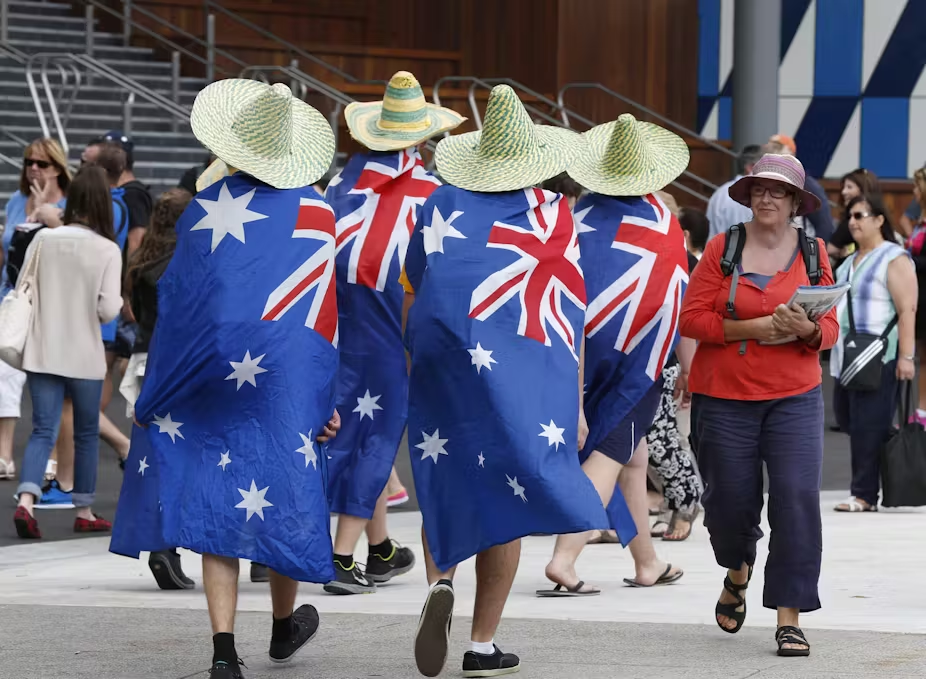Australia, a nation forged through waves of immigration and profoundly shaped by its distinctive geography, continues its dynamic evolution of national identity in the 21st century. This article delves into the pivotal factors that are influencing the contemporary Australian identity in 2025, exploring the intricate interplay between its rich multicultural fabric, the deepening recognition of Indigenous heritage, a growing environmental consciousness, and its active engagement on the global stage.
The Enduring Influence of Multiculturalism
Multiculturalism stands as a defining and enduring characteristic of modern Australia. Successive waves of immigration from virtually every corner of the globe have indelibly enriched the nation’s cultural landscape, contributing a vibrant tapestry of languages, traditions, cuisines, artistic expressions, and diverse perspectives. This rich multicultural fabric is vividly evident in Australia’s bustling and dynamic cities, where diverse communities not only coexist peacefully but also actively contribute to a thriving social and economic environment.
While Australia’s multicultural experiment has largely been a resounding success story, ongoing and crucial dialogues surrounding social cohesion, effective integration strategies, and the persistent need to actively address issues of discrimination remain vital and integral aspects of the national conversation in 2025. For comprehensive information and resources on multiculturalism in Australia, the Australian Human Rights Commission offers valuable insights.
A Deepening Recognition of Indigenous Heritage
A profound shift towards a deeper understanding and a more meaningful recognition of the heritage of Indigenous Australians is increasingly shaping the very core of the national identity in 2025. The long and complex history, the rich and diverse cultures, and the ongoing struggles faced by Aboriginal and Torres Strait Islander peoples are gaining significant and overdue prominence in public discourse, within educational curricula, and across the spectrum of the arts.
Crucial movements towards genuine reconciliation, a commitment to truth-telling about the often-painful aspects of the past, and concerted efforts to address deeply entrenched systemic inequalities are recognized as essential steps in acknowledging and celebrating the unique and foundational place of Indigenous Australians as the First Peoples of this land. This growing national awareness is fostering a more nuanced, inclusive, and ultimately more accurate understanding of Australian history and the multifaceted nature of its evolving identity.
The Rise of Environmental Consciousness
Australia’s unique and often breathtaking natural environment has always held a central and cherished place within its national identity. The vast and varied landscapes, the iconic and often unique wildlife, and the diverse and fragile ecosystems hold a special and deeply felt significance in the Australian psyche. In the 21st century, and particularly evident in 2025, environmental consciousness has evolved into an even more significant and defining aspect of what it means to be Australian.
Growing concerns surrounding the urgent challenges of climate change, the alarming rate of biodiversity loss, and the critical need for the sustainable management of the nation’s precious natural resources are increasingly influencing public policy decisions and shaping individual behaviors across the country. A strong and deeply felt connection to the land, coupled with a tangible commitment to environmental stewardship, are increasingly recognized as key and non-negotiable elements of the modern Australian identity.
Australia’s Role in a Globally Interconnected World
Active global engagement plays an increasingly crucial role in shaping Australia’s identity within an ever more interconnected world. Despite its geographical remoteness, Australia stands as an economically and culturally influential nation, actively participating in international affairs, fostering global trade relationships, and engaging in vibrant cultural exchange initiatives.
The unprecedented ease of international travel and the pervasive reach of digital communication technologies in 2025 have fostered even greater connections with diverse countries and cultures around the globe, significantly broadening perspectives and contributing to a more cosmopolitan and outward-looking national identity. Australians are increasingly aware of pressing global issues and recognize their nation’s role and responsibilities within the broader international community.
The Transformative Impact of the Digital Revolution
The ongoing digital revolution is profoundly impacting the ways in which Australians connect with one another and with the wider world, further shaping the evolving national identity in significant ways. Social media platforms and a vast array of online platforms provide unprecedented new avenues for communication, the formation of online communities built around shared interests, and the amplified expression of a diverse range of voices and perspectives.
However, this digital landscape also presents complex challenges related to the rapid spread of misinformation, the increasing risk of social polarization, and the ongoing erosion of traditional media landscapes. Navigating these complex and multifaceted digital transformations is an ongoing and crucial process that will undoubtedly continue to influence how Australians perceive themselves and their place within the increasingly digital world.
The Evolving Significance of Sport and Beyond
Sport has historically played a significant and unifying role in Australian culture and national identity, fostering a strong sense of shared pride and collective identity. While the passion for sports remains a vibrant part of Australian life in 2025, the definition of what truly constitutes being “Australian” is becoming increasingly multifaceted and inclusive.
National pride and identity are now encompassing achievements and contributions in a broader range of fields, including the arts, scientific discovery, technological innovation, and advancements in social justice. A wider and more diverse array of role models and national accomplishments are contributing to a more inclusive and representative sense of national pride, reflecting the evolving values and priorities of the nation.
In conclusion, the Australian identity in the 21st century, as observed in 2025, is a dynamic, fluid, and constantly evolving concept. It is continually shaped by the ongoing and intricate interplay of its rich multicultural heritage, a deepening and more respectful recognition of Indigenous heritage and culture, a profound connection to and concern for the environment, active and engaged participation in the global community, and the transformative and pervasive impact of digital technologies.
As Australia continues to navigate the complexities and opportunities of the modern world, its national identity will undoubtedly continue to adapt, redefine itself, and ultimately reflect the diverse experiences, evolving values, and collective aspirations of its people.







